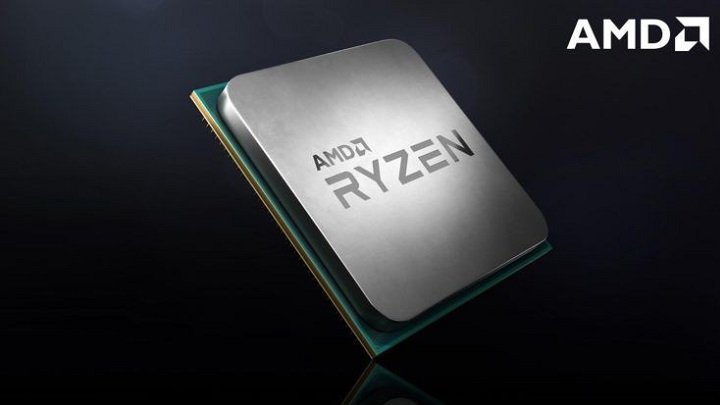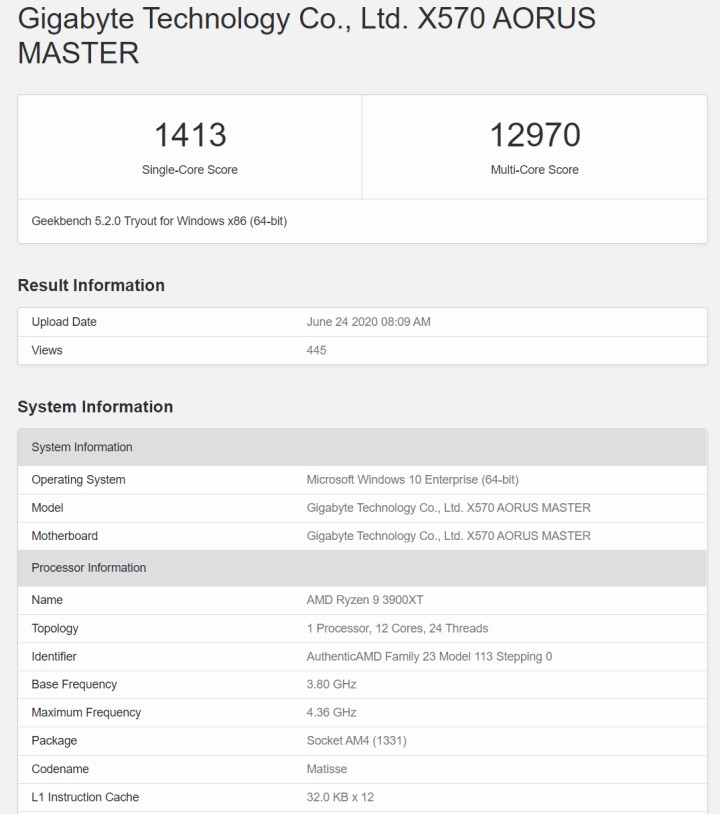Ryzen R9 3900XT Only Slightly More Efficient Than 3900X
The official presentation of AMD Ryzen 3000XT CPUs, a refreshment of the Matisse series, is behind us. Now, even before their launch in stores, the CPUs have appeared, including the top-shelf Ryzen R9 3900XT, in the Geekbench benchmark database, so we got to know their performance. What increase can we expect?

June 16 saw the "paper" launch of Ryzen 5 3600XT, Ryzen 7 3800XT and Ryzen 9 3900XT, which are nothing more than a modest refreshment of last year's Matisse family models. We have two weeks left before the newly announced processors will appear on the shelves (the launch date is set for July 7), but thanks to an entry in the Geekbench database, we have learned the performance of the 12-core and 24-thread Ryzen R9 3900XT. In single-thread operations, where it was supposed to bring the greatest improvement, it is slightly over 10% faster than Ryzen R9 3900X.

The top CPU of the Matisse Refresh Series scores 1413 points (single-thread test) and 12970 points (multi-thread test). It was achieved on a platform based on the Gigabyte X570 AORUS MASTER motherboard and the test rig used 64 GB of DDR4 RAM. In Geekbench database we can also find similar hardware configuration, but using 16 GB of DDR4-3600. In this combination, the results were significantly lower - 1324 points and 10945 points respectively, which translates into about 5% higher performance than Ryzen R9 3900X (1250 and 10498 points respectively).
The results of Ryzen 5 3600XT (1388 and 7910 points) and Ryzen 7 3800XT (1415 and 9850 points) were also added. The performance increase is in line with expectations. Finally, there are processors where Turbo mode clocking has been increased by 100-200 MHz, depending on the model, and a number of smaller improvements have been made over older CPUs. A significant performance improvement can be exoected only with the release of chipsets based on the upcoming Zen 3 architecture. The release of the desktop Ryzen 4000 has been confirmed by AMD in the fall of 2020.
0
Latest News
- Stuck in development limbo for years, ARK 2 is now planned for 2028
- Few people know about it, but it's an RPG mixing Dark Souls and NieR that has received excellent reviews on Steam, and its first DLC will be released soon
- AI „won't make The Witcher 5,” but CD Projekt Red doesn't despise it. Artificial intelligence isn't responsible for massive layoffs in the game industry
- This is expected to be the biggest year in the company's history. Blizzard prepares an offensive that will overshadow previous years
- Bethesda envied CD Projekt RED? Starfield may undergo a Cyberpunk 2077-style metamorphosis

